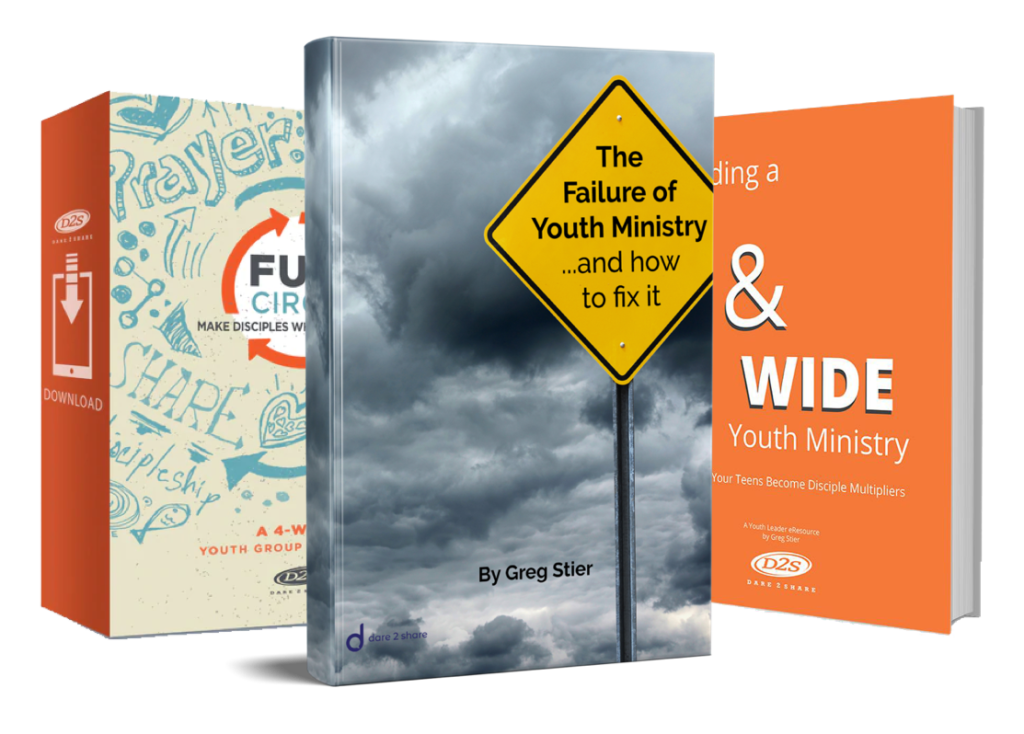When faced with a school shooting, suicide, medical diagnosis, natural disaster, car accident, or some other form of tragedy among your students, youth pastors sometimes find themselves in a swirl of emotion and unsure of how they can help.
In my own small town over the past four months, we’ve dealt with two untimely deaths of students and one of a teacher. This is something you never get accustomed to, but through these tragedies we’ve learned some ways to navigate through difficult times with students in our ministry, as well as with other students in the community.
There are two realms in which we operate:
1. Personal meetings
Meeting with students, ideally one on one, can be enormously helpful. You can do this at school (if allowed), at a restaurant, or in the church office.
For these meetings, I’ve developed a great working relationship with the staff and administration of our closest schools. So when a tragedy occurs, I make a few phone calls to the administration to offer “counseling” or support services. I make it clear I’m not a licensed counselor but I have extensive experience working with students and am available to help.
Even if you don’t have that relationship with the schools, I would recommend calling to see how you can support them. I clear my schedule so I’m available not only for students but also for administrators, staff, and teachers. Just letting them know you’re praying for them and are available for conversation can go a long way.
When I meet with the students or staff, I’m open and honest about my spiritual beliefs, but I’m not forceful. I start by asking a lot of questions, such as:
- How are you feeling right now?
- What is the best memory you have of _______?
- What is your top worry or concern in all of this?
I focus on really listening to their answers and asking clarifying questions.
If appropriate, I often lead into spiritual topics by asking what they think happens to someone after they die. I listen to their answer and then find something to admire about it, even if it’s just admiring their honesty and bravery in sharing it.
Then I take the opportunity to share the Gospel by outlining what the Bible tells us happens when we die. I explain that we all need the saving grace of Jesus Christ to receive forgiveness of our sins, so we can be with God for eternity.
I’m also intentional about reminding Christian students of the promise of the Gospel. This helps them remember the security of their eternity and reinforces the urgent need for them to be sharing the Gospel in as many situations as possible.
I avoid saying platitudes like “things will get better” or “you will move on,” because it’s often hard for students to see a better future in these moments. Plus, “move on” can imply forgetting, and they don’t want to forget these people or the memories they have with them. Instead I use the phrase “move forward” to imply hope and healing.
Lastly, before a student (or adult) leaves my care, I ask if I can pray with them. This is another good way to show that you really care about them and you’re able to intercede on their behalf at a time when they might not know what to pray for themselves.
2. Group meetings
The second realm where you can really make a difference in these situations is at your next group meeting. For our group time, I usually scrap the plans that we had and prepare to talk about death and what happens when it comes.
I prep our volunteers to be ready in case a student needs them during our time together. The conversation tips in point 1 would be good to pass along to them before the meeting. Some great verses to point them to are 2 Corinthians 5:1-8, 1 Thessalonians 4:13-18, and Philippians 3:17-21. Prior to the group meeting time, I spend extra time in prayer and encourage all church staff and volunteers to do the same.
During group time, we open with worship music. Whether the music is live or streamed from a source, this helps set the mood for the night. Next, we read some Scripture and open up for discussion and questions.
Then, while playing some soft worship music, we invite students to pray at the altar or with one of the leaders.
We close with a clear Gospel presentation. We emphasize that we’re hurting deeply because we’ll miss the one who has passed away, but that God’s design, from the beginning, is for us to be with Him. We explain that His free gift of eternal life is available for anyone who accepts it.
Finally, it’s important to let the students know that you care about them, you’re available to them, and you will help them get through this hard time.









